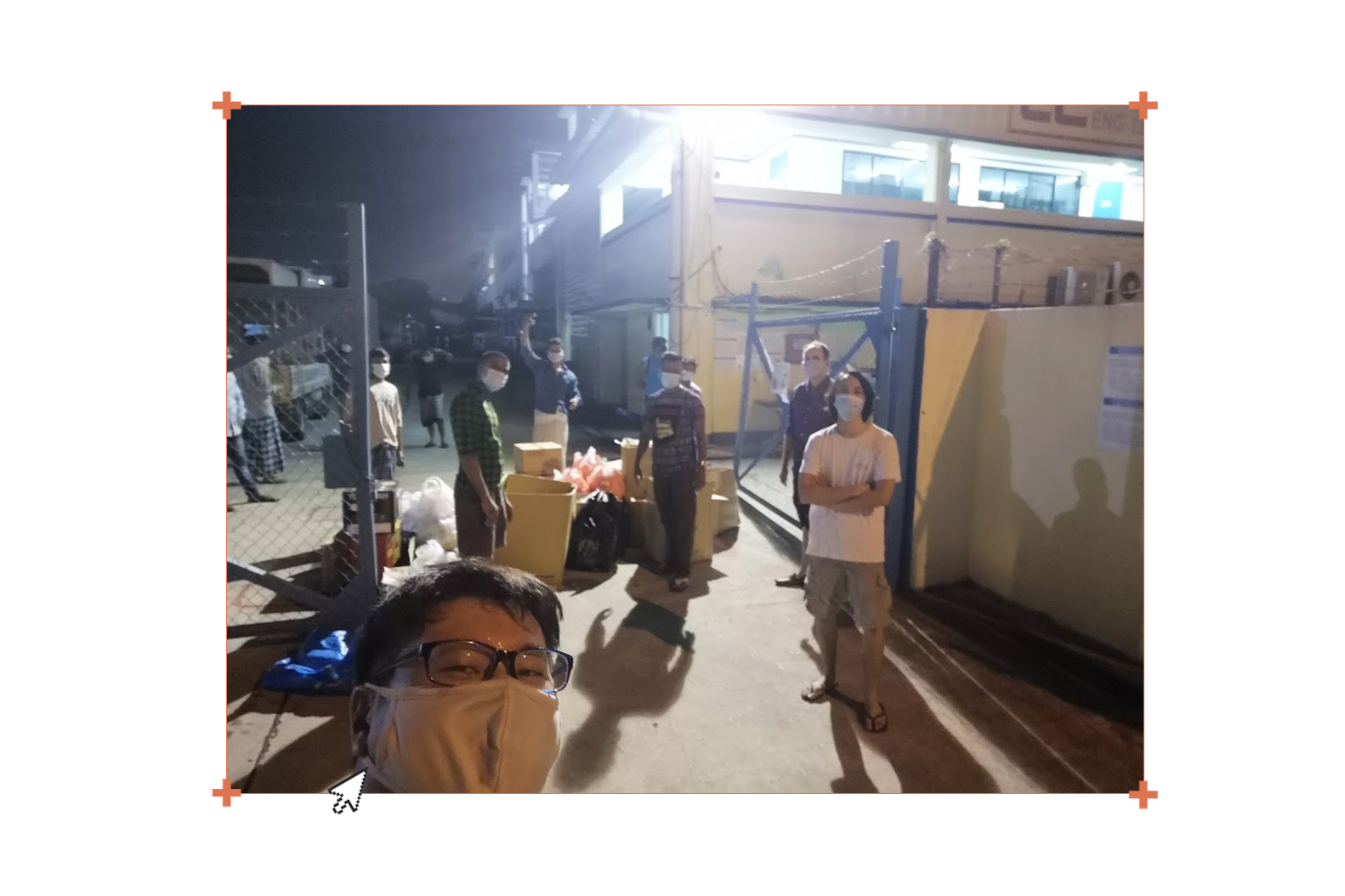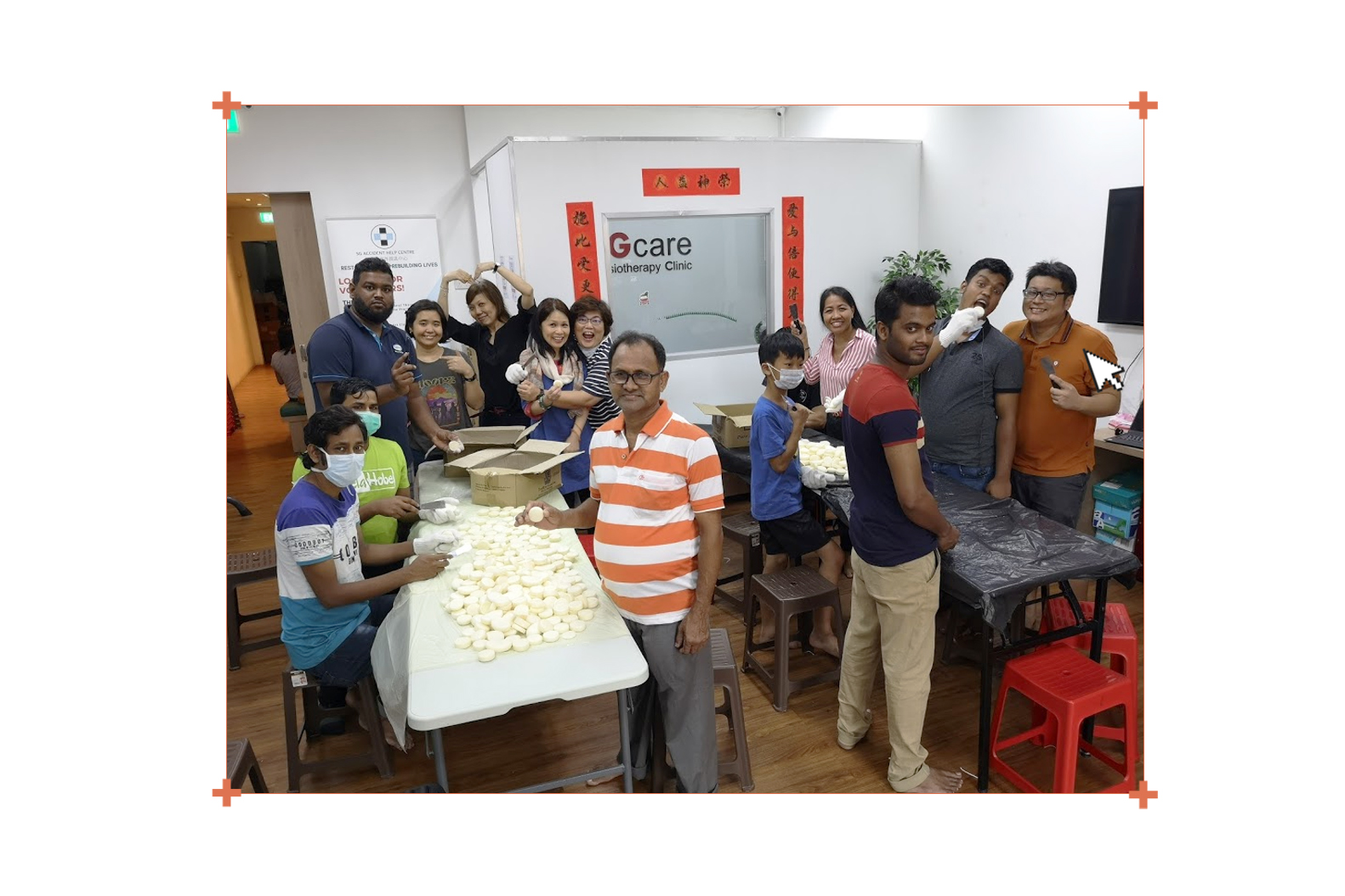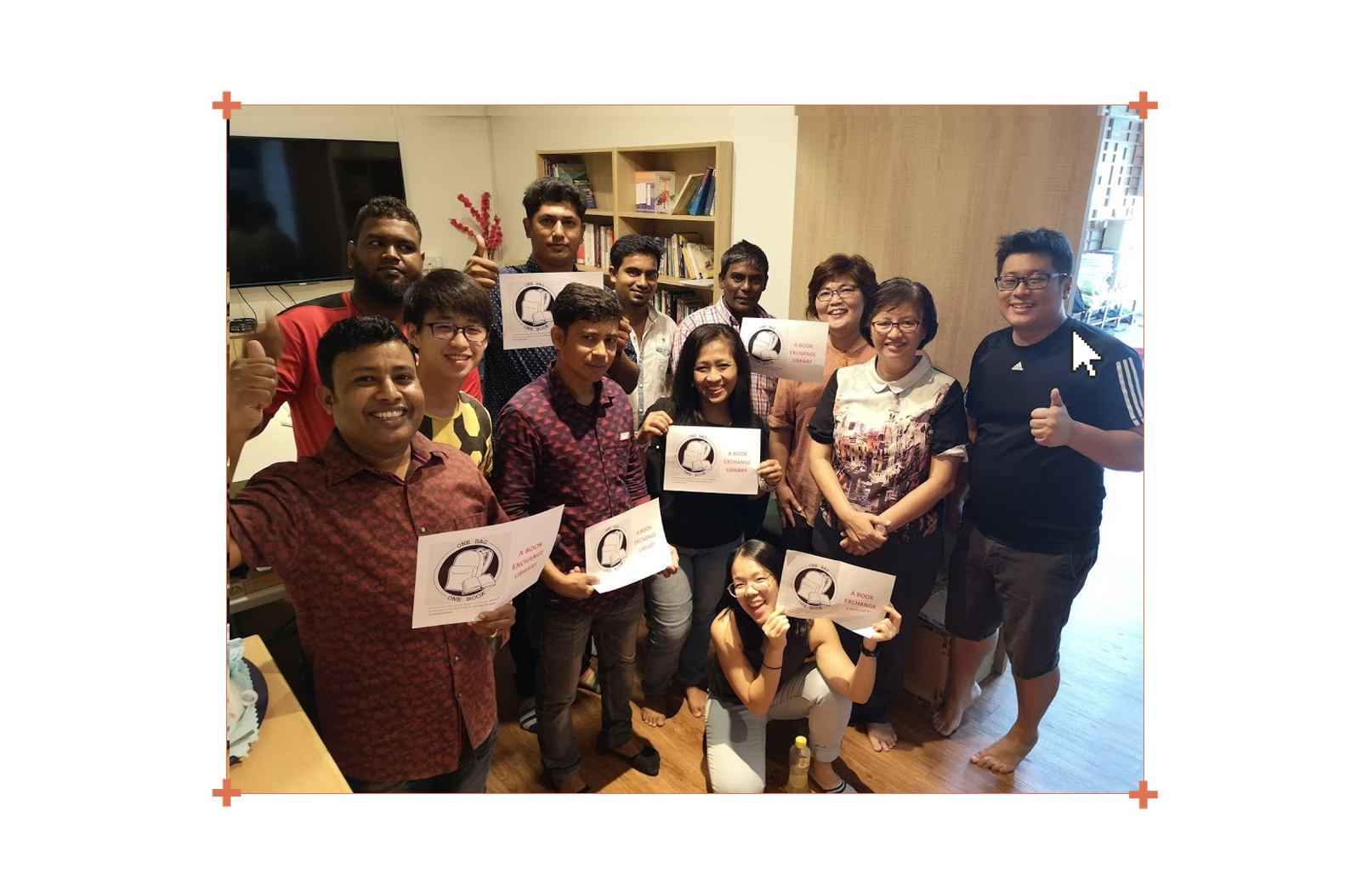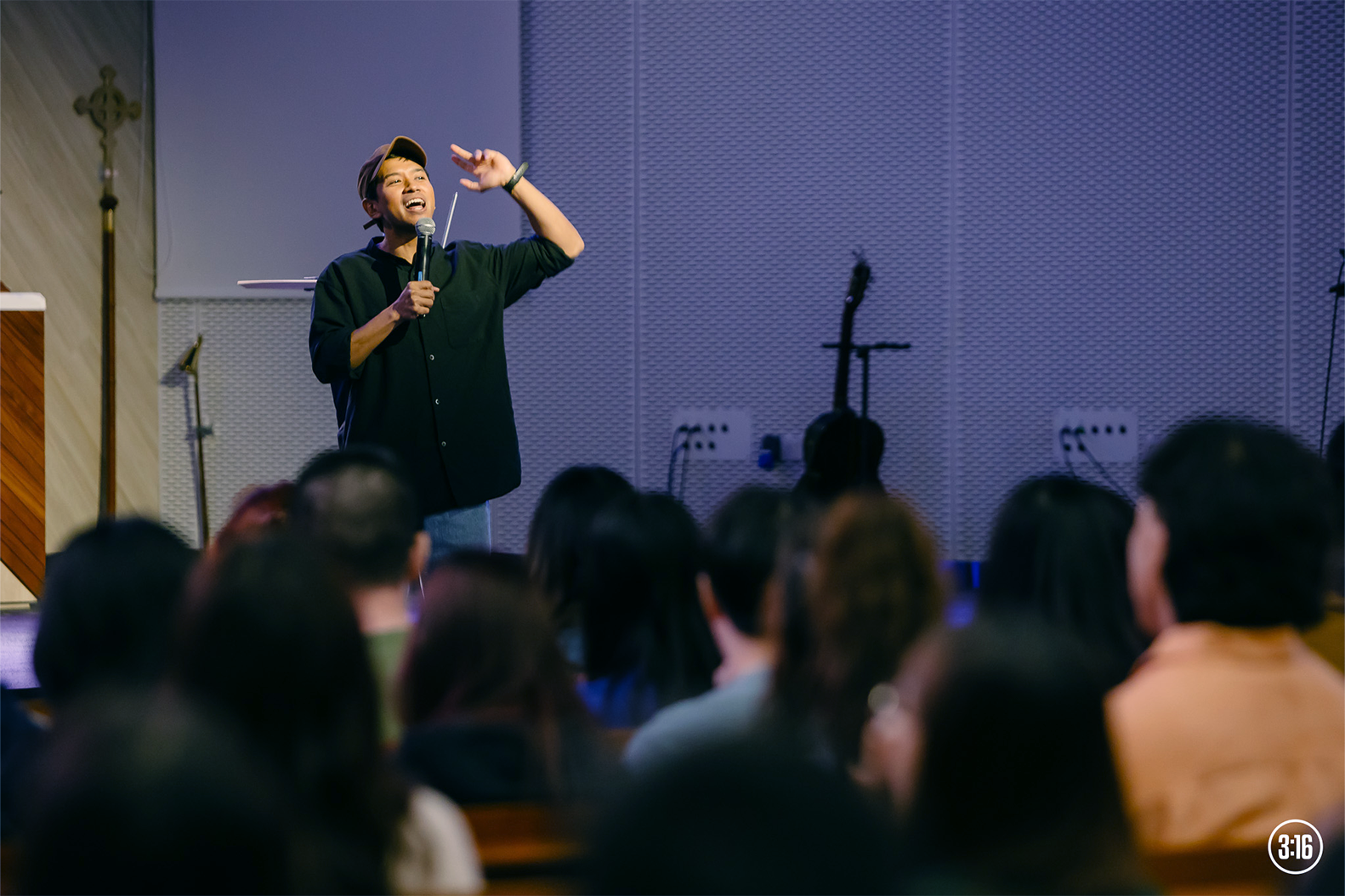In light of the struggles our migrant worker brothers and sisters have been facing, especially in recent months owing to COVID-19, I wanted to find out more about what is being done to serve them in this time.
Having previously chatted with others striving to make a difference, like this family who serve as dormitory operators, I was glad to have the privilege of meeting Jevon Ng and Jacqueline Tan over Zoom.
These two ordinary Singaporeans have been passionately working for the welfare of the migrant worker community, and there’s much we can glean from their time on the ground and their insights.
Currently a Director of SGcare Physiotherapy Clinic and Casework Manager for SG Accident Help Centre, Jevon’s involvement with migrant workers first started in 2013.
Despite being a Nanyang Technological University (NTU) Chemistry graduate, an internship at Healthserve caused a chain reaction in his career path to delve deeper into the work as a Social Work Executive at Humanitarian Organization for Migration Economics (HOME).
Now 32, he has been journeying closely with migrant workers since then.

Jevon’s job is often administrative in nature.
He frequently works with the Ministry of Manpower, hospitals, employers and therapists to facilitate migrant workers’ access to healthcare and recovery, and pulls together resources like legal and financial assistance.
He also helps them with work injury claims and provides support for those in distress through Here With You, a migrant workers’ helpline he co-founded which received about 350 calls during the circuit breaker alone.
Jacqueline, on the other hand, reaches out to Bangladeshi cleaners (also known as “conservancy workers”) in our public housing estates.
This was something she had started doing back in 2013 with a small group of volunteers and her ex-boss from Healthserve.
Even though she has left her communications and partnerships roles at Healthserve and HOME after nine years on the job, she remains involved in volunteer work with migrant workers.
Now in her 40s, Jacqueline is partnerships manager at Soap Cycling Singapore, a green initiative that collects and recycles mildly used soap from hotels, and distributes them to communities in need here and in the region.
In recent years, the recruitment fees have soared to $10,000 and above.
Jacqueline shared that she first got to befriend migrant workers in 2006, when she joined a volunteer-run arts group called “Migrant Voices”.
“A group of us would meet up with migrant domestic workers and construction workers on Sunday to engage in drama and music workshops,” she recalled. “Through the Sunday activities, I gradually got to know the migrant workers as friends. As I spent more time with them, they opened up about why they came to Singapore to work and how they made their way here.”
As she learned more about their working conditions, she realised “things were not quite right” with her new friends’ work situations.
“I found out that they paid $5,000 to $7,000 – and this was way back then!” revealed Jacqueline. “In recent years, the recruitment fees have soared to $10,000 and above while wages remain stagnant at $18 per hour for newcomers to come to Singapore to work.”
She continued: “And whenever it was time for their work permit renewal, they had to fork out another lump sum before their contracts could be extended.”
While COVID-19 has surfaced the poor living conditions migrant workers face, Jacqueline believes that their more pressing concerns are work injuries and salary claims.
Jacqueline further elaborated on the systemic problems migrant workers face: “We can’t talk about the plight of migrant workers without talking about social injustice. It’s intersectional.
“We need to recognise that there are systemic injustices that have led to the exploitation of migrant workers.”
HOW CAN THERE BE NO ONE SUFFERING IN SINGAPORE?
Jevon then shared that it was this very concept of social justice that drove him to seek out and serve migrant workers.
Growing up, Jevon always had the impression that Singapore was clean and pristine. But he began to question that notion as he got older: “It didn’t make sense. How can there be no one suffering or marginalised in the society?”
“I started looking for justice narratives in the Bible during my university days,” he revealed. Jevon felt strongly that there must be more to Christianity than just evangelism, believing that God also had plans to transform societies.
Jevon shared that as he was driven to think hard and pray, he asked God to help him see where the marginalised were in Singapore, what Christians were doing, and what he could be doing to help.
A singular question rang out in his heart: “How do I show care and love for people who are weak and marginalised?

God then spoke to Jevon through the first five books in the Bible, revealing to him that the heart of God has always been with the marginalised and oppressed (Exodus 22, Deuteronomy 24:14-15).
“This is why He gave the Jews a new law to show them how to love their neighbours and how they can be different people,” explained Jevon. “This love was to be realised in the policies they practised in this new society. They were taught not to mistreat foreigners, to pay them their due wages, and not to take advantage of the widows and fatherless.
“Paul tells us in Corinthians that this same law has been inscribed into our hearts of flesh by the Spirit of the living God.”
The heart of God has always been with the marginalised and oppressed.
Having heard from God, Jevon began to seek out opportunities to serve the marginalised and oppressed. So upon graduation from university, when most people would be looking for full-time jobs, Jevon decided to intern at Healthserve.
The experience was priceless to Jevon, who began to understand the issues that Singapore’s migrant workers were facing. He recalled an occasion in particular, where he opened a food packet that the migrant workers eat daily and saw just how much nutrition and hygiene it lacked.

Jacqueline and Jevon went on to share more stories with me in our conversation, and the one that really stayed with me involved a luxurious condominium.
Prior to COVID-19, employers were compelled to meet construction deadlines to avoid penalties. This bottom line resulted in many contractors attempting to “get the job done within the quickest time at the lowest cost”.
They explained that the Chinese worker who was staying at the basement dormitory of the condominium (during its construction phase) had been brave enough to film his living conditions secretly.
This footage was then passed on to social workers at HOME, who discovered that the worker’s living conditions were shockingly poor, the complete opposite of the luxury home his own hands were building.
WHAT CAN I DO?
After chatting with Jevon and Jacqueline, what stood out to me was the warmth with which they described their migrant worker friendships. There was a love that overflowed from within, and it was evident that they had intentionally invested in forging these personal relationships.
But hearing all the issues that our migrant workers face made me feel rather helpless. What could I possibly do to change something?
Jacqueline then suggested something which greatly encouraged me. She offered an idea that I felt was immediately applicable: “Start with the migrant workers in our own backyard, those who work in your schools and neighbourhoods. Strike up a conversation with them, find out if they are doing okay.”
“They might not open up to you immediately. But once you become a familiar face, they’ll start opening up,” she encouraged.
“And if they are facing work issues or need medical assistance, you can then direct them to the NGOs for assistance.”
And for those who still lack the courage to befriend a migrant worker on your own accord, there’s hope.
You can check out some current NGO initiatives targeted at providing a platform for migrant workers and Singaporeans to hang out together – a great one I’ve found is Welcome In My Backyard.
Another baby step could be helping to raise awareness of the helplines that are available for the migrant workers. You can use your social media accounts to share these helplines!
As I wrote at the start of this article, Jevon and his team came up with Here With You. The helpline’s aim is to de-escalate workers’ mental distress so that no one is made to feel like suicide is the only way out.
Ultimately, the need is great and there are many ways you can help. So let’s take a small but intentional step to help our migrant workers thrive in our land.
- Have you ever spoken to a migrant worker in Singapore?
- Ask God what His heart is for the migrant workers in our land. Read the scriptures that talk about this.
- For a start, greet the migrant workers you cross paths with this week.
- Seek out an opportunity or organisation that helps you befriend and serve migrant workers in Singapore.









